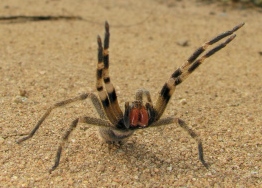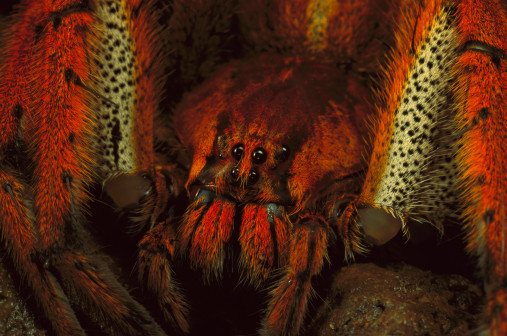Fun Page:
Everyone knows that the Brazilian Wandering Spider is one of
the cutest and cuddliest spiders on earth; minus the fact that a
small amount of their venom could kill a human. This page is
dedicated to informing you on some of the more entertaining
facts about P. fera and even includes a small quiz at
the end of the page to test your knowledge:
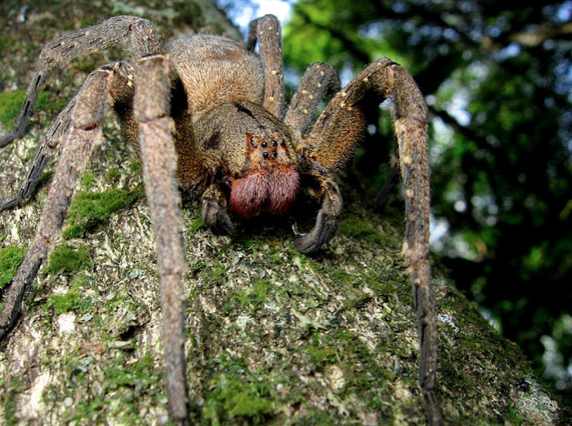
Fun Facts:
-A bite from the Brazilian Wandering Spider has the
potential to induce erections in male humans which are
incredibly painful and typically last up to four or five hours.
This is known as priapism.
-P. fera is also known as the banana spider because
they like to find their way into crates shipping bananas to
other places around the world. Leaving a pleasant surprise for
the recipient of the crate.
-Peak reproduction times for this species are during the driest
months of the year which is usually between the months of
May-August.
-Guinness Book of World Records named the Brazilian Wandering
Spider the deadliest spider in the world.
-P. fera is known to have a very distinct defensive
position in which they lift their two front walking legs
straight up in the air to warn their attacker that they mean
business.
-Of all Phoneutria, P. fera and
P. nigriventer are considered to be the most dangerous
because they are usually the most aggressive and the largest.
Some videos of P. fera in action:
Brazilian Wandering Spider attacks a shoe
Short descriptive video of P. fera
QUIZ TIME:
1) To which
class does P. fera belong to?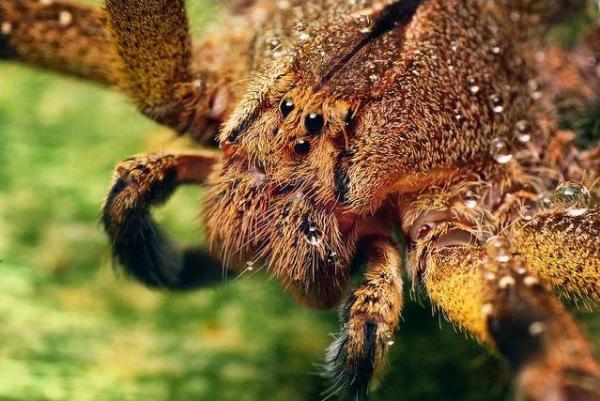
a) Insecta
b) Arachnida
c) Araneae
d) Arthropoda
2) What is the main predator of P. fera?
a) humans
b) large rodents
c) Tarantula Hawks
d) other spiders
3) What is the process that the Brazilian Wandering Spider goes
through that allows it to grow?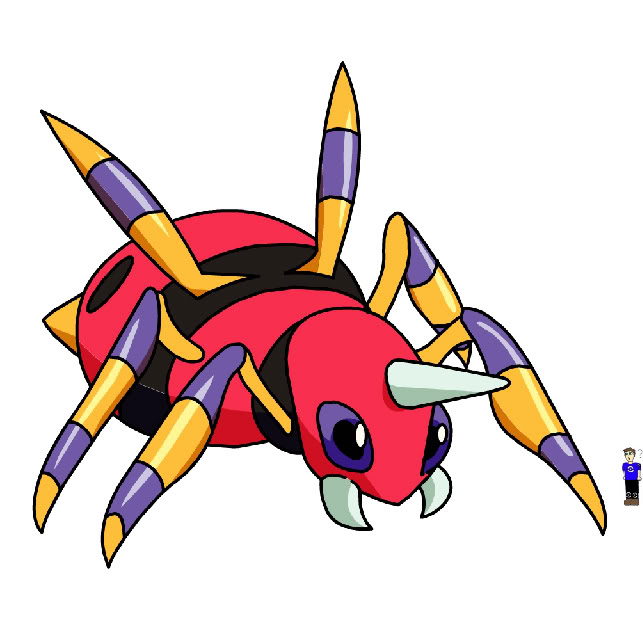
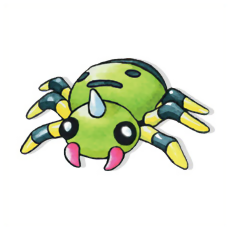
a) metamorphosis
b) priapism
c) magic
d) molting
4) How does P. fera let you know it is about attack?
a) raising its front two legs
b) making a hissing noise
c) vibrating its pedipalps
d) raising their abdomen up in the air and spreading their
legs
5) What forest is P. fera generally found in?
a) Amazon Rainforest, Brazil
b) Hixon Forest, La Crosse, Wisconsin
c) Congo Rainforest, Africa
d) Temperate Rainforests of Northwestern America
Key: b,c,d,a,a
Scale:
1-2 correct: spider novice
3-4 correct: spider handler
5 correct: spider whisperer
Click here to be brought
back to the home page
